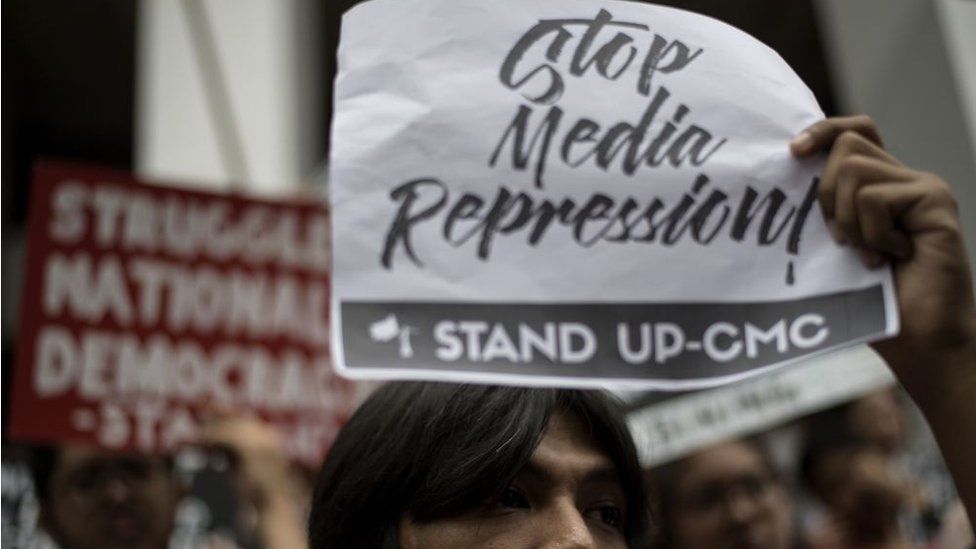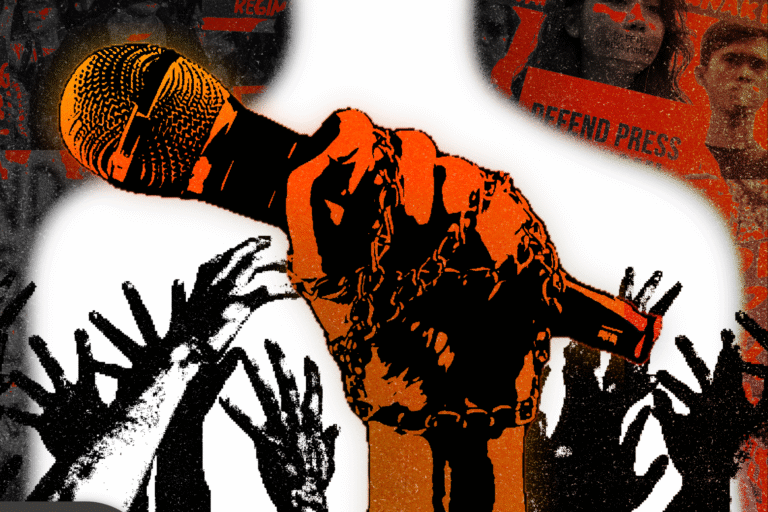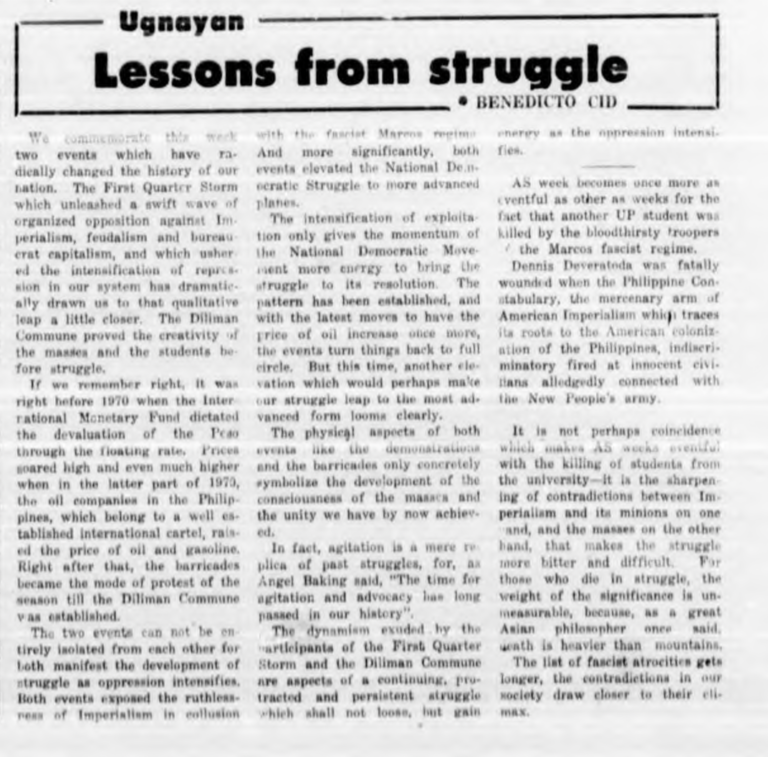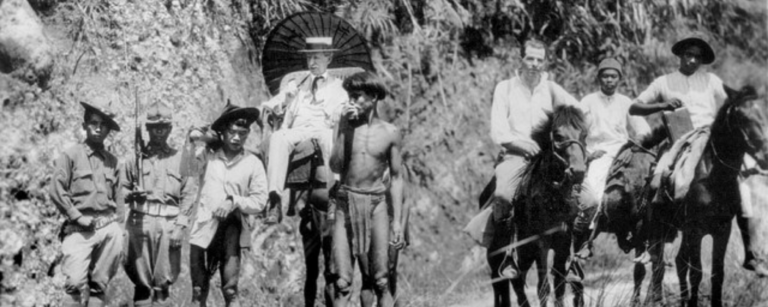
Historically, the press has been dubbed as the Fourth Estate for its power to frame and influence the political scene.
Now, more than ever, media platforms have a key role in the upcoming Philippine elections. Especially at a time when the looming dominance of the Marcos-Duterte tandem is a bad omen for the future of a very dangerous yet daring Philippine media.
We are a time where information dissemination allows for the quick spread of campaign materials and, conversely, political and historical distortions. The challenge of discernment then lies with the voters, so they can choose a truly competent leader that upholds integrity and displays authenticity.
Amid trudging through the ravages of the pandemic, it rings truer that the truth must prevail, especially in such a pivotal period for the Filipino people.
Since time immemorial, the media serves as the nation’s watchdog, reporting discrepancies, and anomalies in the government and society.
Journalists and news sites have persisted and continue to play a crucial role in disseminating truthful information, grounded on facts. The media has divulged the role of candidates and their track record, delving deeper into their stances on relevant issues, to ascertain the public’s wise vote towards a decision that will impact their future.
More importantly, they serve to strengthen democracy through critical reportage, shedding light on oppression, and amplifying the voices of the unheard.
Nobel laureate Maria Ressa notes the important role of journalists–“speaking truth to power.”
This means being critical and calling out anomalies where there are any. Ressa, as a journalist, has openly called out the faults of the current administration, like the extrajudicial killings of the drug war.
Ressa likened the state-aligned disinformation infrastructure to the philosophy of Nazi propagandist Joseph Goebbels who said that lies must be repeated a thousand times to become the truth.
Hence, the large responsibility of reporting with accuracy and public interest stands true at a time when information is politicized by dictators and their cronies. It is vital that, in a political climate fueled by corrupt interests, the media must expose and stick to the truth of the people.
In a world plagued by fake news, non-accredited news sites and internet platforms have become a haven for plunderous and dirty politics to thrive, muddying and blurring lines that separate truth from delusion—they legitimize a dictatorship and facilitate a new one.
Recently, self-proclaimed “Appoined Son of God” and cult leader, Apollo Quiboloy, was posted as wanted by the FBI for sex-trafficking, among other crimes. Quiboloy was noted as a notorious propagandist who utilized platforms to attack activists and journalists. His own news site, Sonshine Media Network International (SMNI) News, has been used to red tag staunch critics of the Duterte administration and spread disinformation.
Quiboloy is a Duterte crony. And one of his rewards is the ABS-CBN frequencies which the latter lost when Duterte made sure the franchise was shut down.
An investigative report from Rappler noted that networks and websites, like SMNI News, that discredit credible media, operate systematically, with troll farms being hired to pass on fake news. Rappler also found SMNI News to be one of the leading fake news mills in the country.
READ: https://tinyurl.com/2p8ct32e
Today, SMNI News has red-tagged members of the Makabayan bloc. The “news site” even circulated false quote cards of incumbent Vice President Leni Robredo. The site has also lent its platform to pro-Duterte propagandists such as Sass Rogando Sasot and Thinking Pinoy’s RJ Nieto.
SMNI News irresponsibly reported the fake Oxford bachelor’s degree of tax convict and presidentiable Ferdinand “Bongbong” Marcos Jr. as a fact — a manifestation of a state-backed fake news mill manipulating delusion as the truth. SMNI News even introduced the son of the dictator as an “economist” during their presidentiable debate despite the fact that he is not.
READ: https://tinyurl.com/2p9df7r4
Networks like SMNI News have placed many lives in danger, and have tainted the credibility of numerous known and verifiable news sources and outlets, making it easier than ever before to disseminate false information and state propaganda.
Let us deal with the Philippine News Agency and Manila Times and its own Bobby Tiglao next time. But what is clear now is that the contradiction between the reactionary and alternative critical media intensifies as Duterte aims to secure the national post in May 2022.
In the context of the current elections, propaganda platforms pose a threat to democracy by championing corrupt interests of self-serving politicians. The lack of accountability for networks like this lends a hand to the perpetuation of a long-instilled culture of impunity and threatens to undermine the truth, our institutions, and our lives.
In an ideal world, purveyors of fake news and information should be held accountable. However, our world is not ideal. The overwhelming amount of unregulated information on the internet, aided by online algorithms that promote viral trends, leaves users more vulnerable to believing in lies.
Yet, the state has found a way to use such dilemma to weaponize the law against critics via cyber-libel and the pending Sim Card Registration Bill which also registers our social media accounts for surveillance.
When people are bombarded by an algorithm that caters black propaganda, there will come a time when beliefs will be put into question. While individuals have a responsibility to discern, media and news outlets, along with influencers who wield a lot of power, should be held accountable for the things they post.
The media has a responsibility to critically investigate the facts, go beyond the figures and illusions, reveal the truth, and lead the people to collective action.
Maria Ressa once said, “In a battle for facts, in a battle for truth, journalism is activism.”
During this campaign season, that burden weighs heavier as different political camps, many of which are engaged in traditional mudslinging politics, are working to win votes.
Members of the media should be responsible for ensuring the availability of the truth and facts to the public, strengthening the calls of the people, and calling out irregularities during this pivotal moment in our history. After all, these issues have a far-reaching effect that can be felt by future generations.
Being activists serving the people and bringing the truth to light is the journalism needed in our dark times. This is a great lesson paid in blood by Wenceslao Vinzons, Antonio Tagamolila, Tony Zumel, Christine Puche, and Wanda Gumban.
To be a journalist is to be an activist for both confronting the realities of today and imagining the vividness of tomorrow.
#DefendPressFreedom
#DefeatMarcosDuterte
Featured image courtesy of Getty Images.








I’m so in love with this. You did a great job!! http://www.kayswell.com